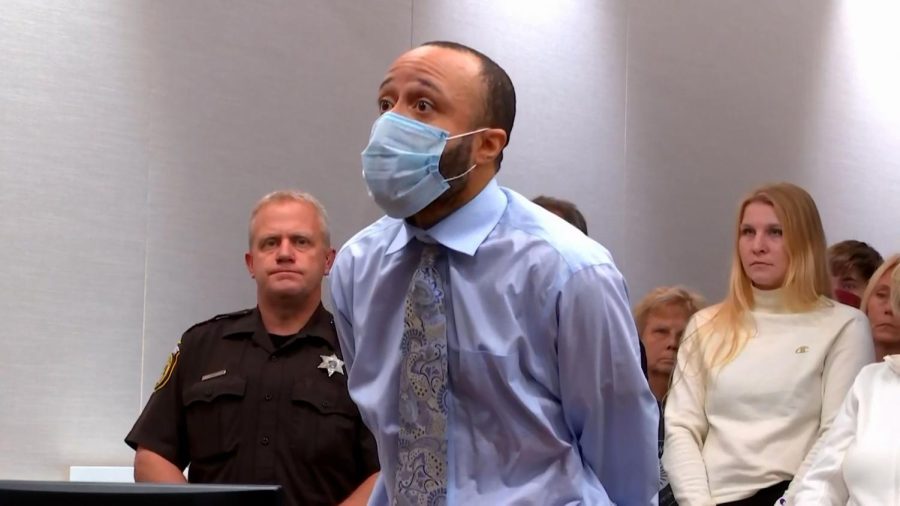Man accused of killing 6 at Waukesha Christmas parade found guilty of intentional homicide
Darrell Brooks was found guilty of six counts of first-degree intentional homicide on October 26 for driving his SUV into a crowd of Christmas parade attendees in Waukesha, Wisconsin, last November, killing six people and wounding dozens more.
October 26, 2022
(CNN) — Darrell Brooks was found guilty of six counts of first-degree intentional homicide on Wednesday for driving his SUV into a crowd of Christmas parade attendees in Waukesha, Wisconsin, last November, killing six people and wounding dozens more.
He faces a mandatory sentence of life in prison for the convictions.
Brooks, 40, had pleaded not guilty to six counts of intentional homicide with the use of a dangerous weapon as well as more than 60 other counts of first-degree recklessly endangering safety. The judge is still reading the verdicts on the recklessly endangering safety counts.
Prosecutors said in closing arguments Tuesday he intentionally drove through the crowd at significant speeds and hit 68 individual parade-goers, turning a joyous afternoon into a horrific one.
“He reached speeds of approximately 30 mph. That’s intentional. He plowed through 68 different people. 68. How can you hit one and keep going? How can you hit two and keep going?” Waukesha County District Attorney Susan Opper said.
“His intent I do have to prove, and I submit without any doubt there’s overwhelming evidence that this was an intentional act by Darrell Brooks and an act of utter disregard for human life.”
In his own closing arguments, Brooks attempted to raise questions about the vehicle and about his intent. He repeatedly said there had been “misconceptions” and “lies” told about him during the trial.
“I’ve never heard of someone trying to intentionally hurt someone while attempting to blow their horn while attempting to alert people of their presence,” Brooks said.
Jurors deliberated on Tuesday night for just under two hours.
The trial comes less than a year after a red SUV slammed through the crowd in Waukesha’s Christmas parade on November 21, killing an 8-year-old boy and several members of the “Dancing Grannies” group.
Brooks had been released from jail less than two weeks prior in a domestic abuse case, on a $1,000 bail that prosecutors later acknowledged was “inappropriately low.” In that case, he allegedly ran over a woman who said she’s the mother of his child, according to court documents.
Brooks defended himself in court
His trial has been marked by his unusual decision to represent himself in court and his persistent disruptions and outlandish behavior. Throughout the trial, he has spoken over prosecutors and the judge, asked vague questions, challenged the court’s jurisdiction and declared “Darrell Brooks” is not his name.
Judge Jennifer Dorow has repeatedly removed Brooks from the court for his outbursts and placed him in a nearby courtroom, where he can communicate via a monitor and microphone which is most often muted.
On Tuesday, after removing him for the prosecution’s closing arguments due to interruptions, she called him “stubbornly defiant.”
“He continues to not respect the fact that a ruling has been made, and he wants to argue and reargue and reargue points that this court has already gone over,” she said.
Brooks previously pleaded not guilty by insanity, but his public defenders withdrew the insanity plea in September. The attorneys later filed a motion to withdraw from the case, and the judge ruled to allow Brooks to represent himself at trial.
Opper, the prosecuting attorney, told jurors not to be distracted in their deliberations by Brooks’ conduct during the trial.
“You must not, not, not consider anything about Darrell Brooks other than his conduct in downtown Waukesha on the evening of November 21, 2021,” Opper told the jury. “Nothing he’s done before that, nothing he’s done since that. When you go back to that deliberation room, please obey Judge Dorow. Confine your comments to his conduct on November 21.”

























